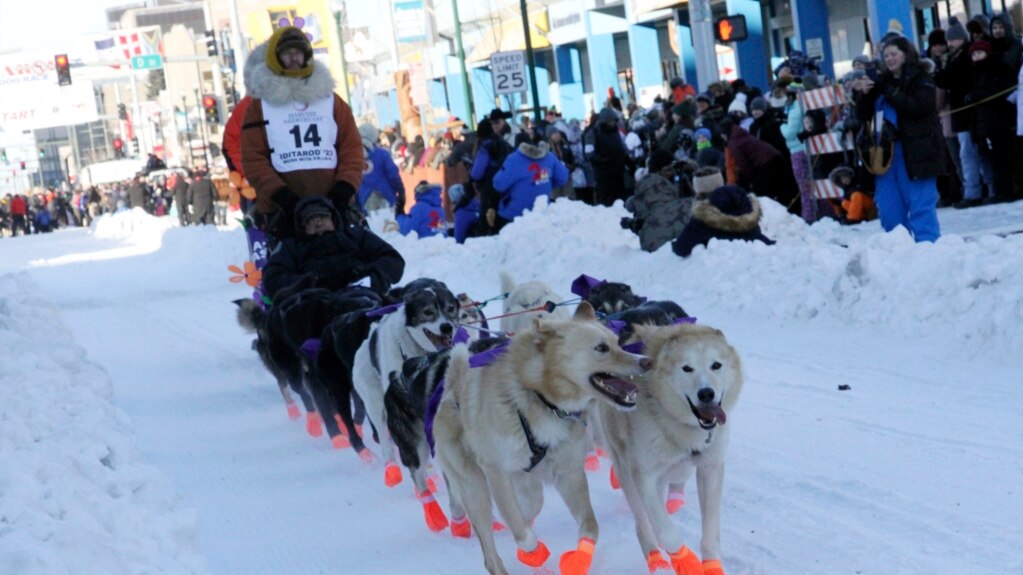Competitors in this year’s Iditarod dogsled race in Alaska are dealing with another struggle along the trail – unusually high temperatures.
Jason Mackey leads one of the dogsled teams. He told The Associated Press a thermometer attached to his sled hit 26.67 degrees Celsius at one point last week. The weather is usually very cold. The Iditarod Trail Sled Dog Race is a sport better-fitted to temperatures well below zero.
Mackey and other racers had to reconsider their usual plans to deal with the heat and poor trail conditions during the 1,609-kilometer race across Alaska.
Although it is warm along the race path, it was not that warm in interior Alaska, said Brian Brettschneider. He is a climate scientist with the National Weather Service in Alaska.
The thermometer on the sled had been in the sun so it could not did not provide an official reading, Brettschneider noted. However, the warm and sunny conditions are still having clear effects on the people experiencing it, he added.
Not that long ago, the same area was much cooler than normal, which appeared to improve racing conditions. The warmer conditions have been driven by an area of high pressure, Brettschneider said.
Many communities in America’s largest state hit record highs last week. Along the Iditarod trail, the community of McGrath did not set any records. But, it hit a high Wednesday of 2.22 degrees Celsius. The low in the area was 2.78 degrees. Normally at this time of year it is about -18 degrees, Brettschneider said.
Effects of the warmth have been seen all along the Iditarod trail. “There’s almost no places that were below freezing…,” Brettschneider said.
That was not news to Mackey. “I wish the temperatures would cool down,” he said. Mackey added that the heat had created other issues also. At one point on the path, he saw two mosquitoes on his sled. “Yeah, it’s spring,” Mackey said.
Mackey said the heat has definitely affected the performance of his dogs, whom he calls “big boys.” Each weigh more than 36 kilograms. Mackey noted that while other teams were moving in the heat of the day, he was not willing to do that. “I mean, it zaps them,” he said of the dog team.
Kelly Maixner, a children’s doctor, said his dogs do not like the heat. He would rather have it be -28.89 degrees Celsius.
The race started March 5 in Willow, just north of the state’s largest city, Anchorage. The dog teams will cross over two mountain areas, the frozen Yukon River and the Bering Sea ice before reaching the finish line in the small town of Nome. The winner is expected to be announced sometime this week.
I’m Bryan Lynn.

